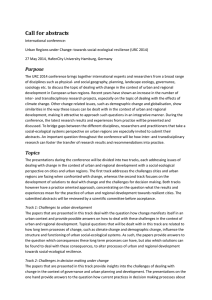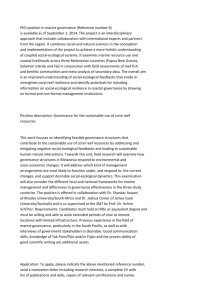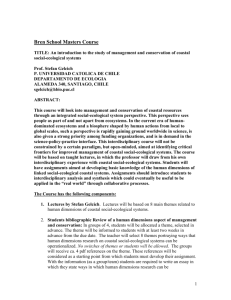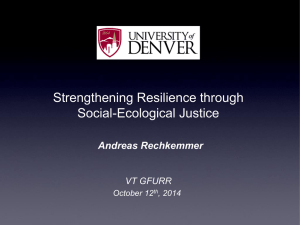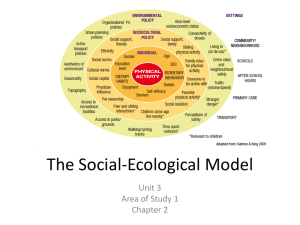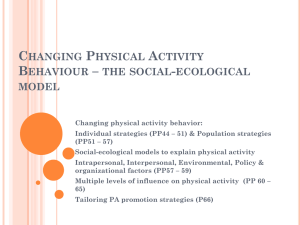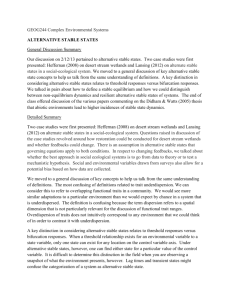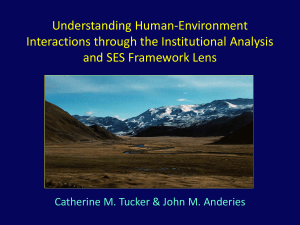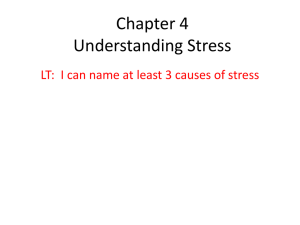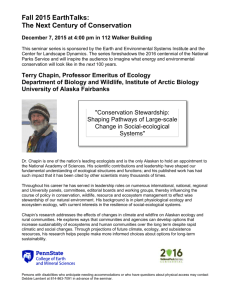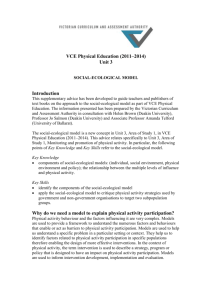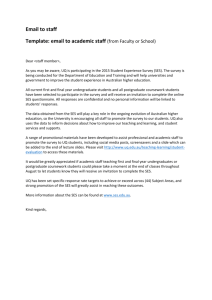187 - 12th Pacific Science Inter
advertisement
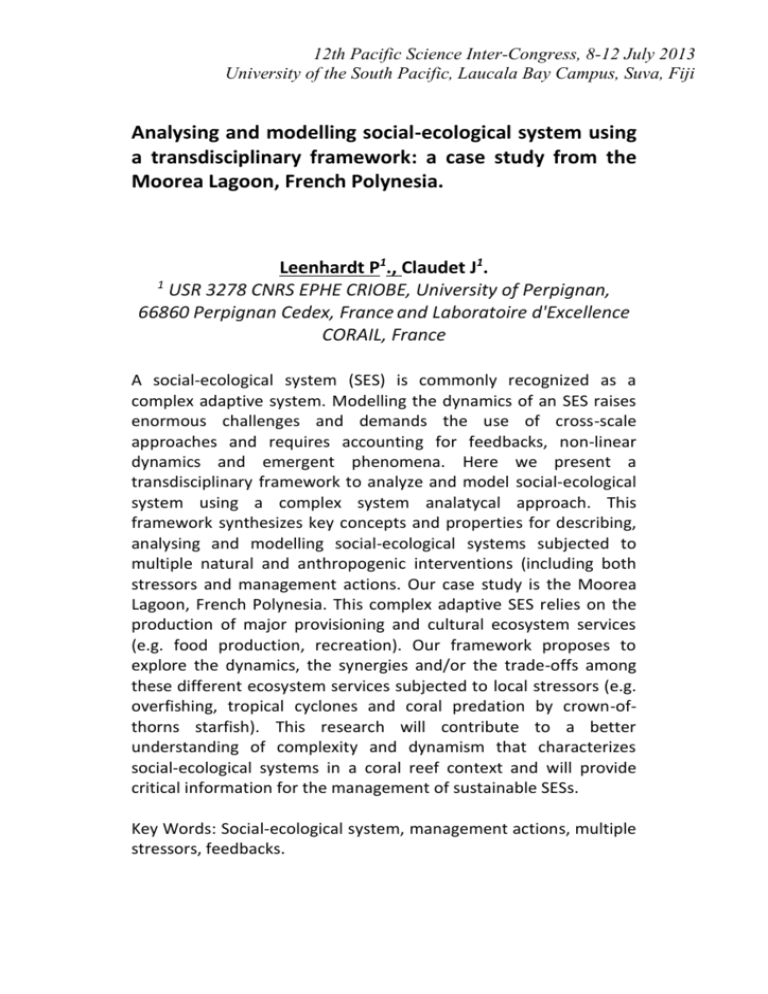
12th Pacific Science Inter-Congress, 8-12 July 2013 University of the South Pacific, Laucala Bay Campus, Suva, Fiji Analysing and modelling social-ecological system using a transdisciplinary framework: a case study from the Moorea Lagoon, French Polynesia. Leenhardt P1., Claudet J1. 1 USR 3278 CNRS EPHE CRIOBE, University of Perpignan, 66860 Perpignan Cedex, France and Laboratoire d'Excellence CORAIL, France A social-ecological system (SES) is commonly recognized as a complex adaptive system. Modelling the dynamics of an SES raises enormous challenges and demands the use of cross-scale approaches and requires accounting for feedbacks, non-linear dynamics and emergent phenomena. Here we present a transdisciplinary framework to analyze and model social-ecological system using a complex system analatycal approach. This framework synthesizes key concepts and properties for describing, analysing and modelling social-ecological systems subjected to multiple natural and anthropogenic interventions (including both stressors and management actions. Our case study is the Moorea Lagoon, French Polynesia. This complex adaptive SES relies on the production of major provisioning and cultural ecosystem services (e.g. food production, recreation). Our framework proposes to explore the dynamics, the synergies and/or the trade-offs among these different ecosystem services subjected to local stressors (e.g. overfishing, tropical cyclones and coral predation by crown-ofthorns starfish). This research will contribute to a better understanding of complexity and dynamism that characterizes social-ecological systems in a coral reef context and will provide critical information for the management of sustainable SESs. Key Words: Social-ecological system, management actions, multiple stressors, feedbacks.
